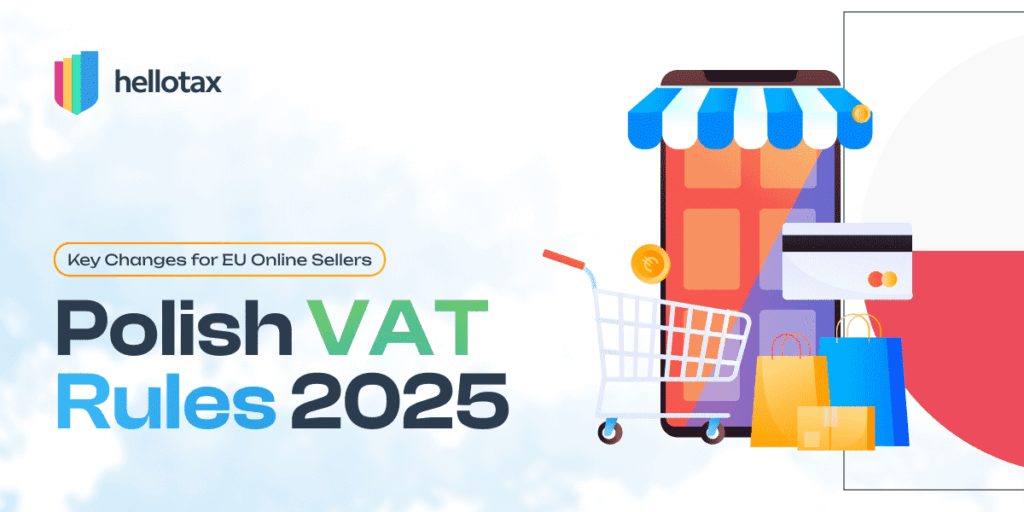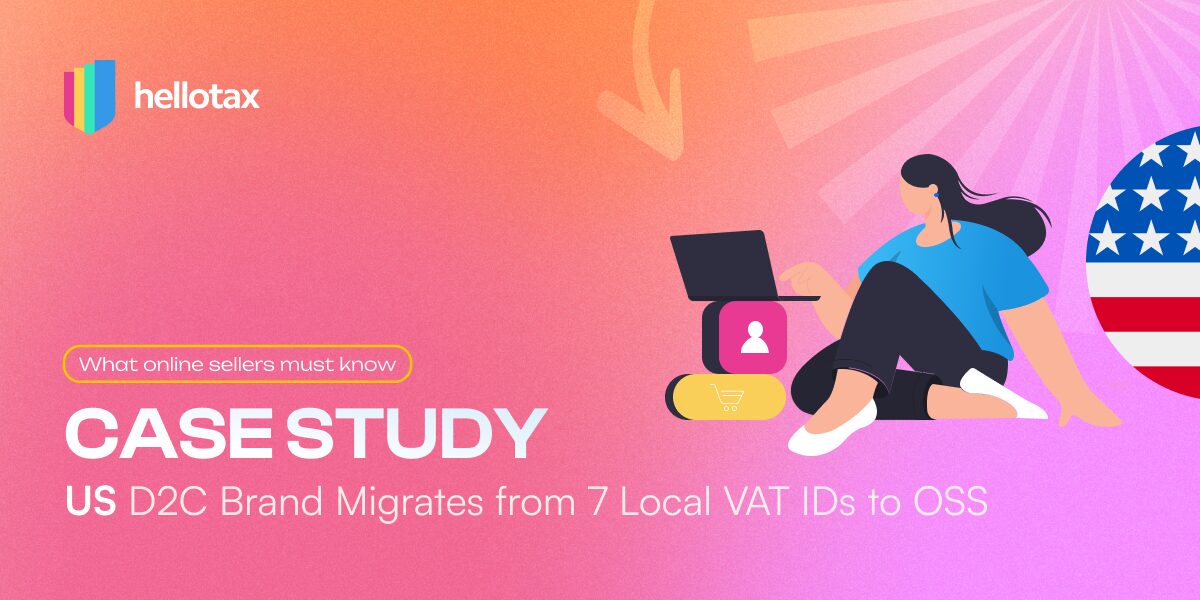Polish VAT rules are undergoing significant changes in 2025 and beyond, directly impacting online sellers operating in Poland. From exemptions for EU SMEs to mandatory KSeF e-invoicing, here’s everything Amazon sellers and other online businesses must know to stay compliant.
Brenda Varela
Last Updated on 17 June 2025
1. VAT Exemption for EU-Based SMEs (Effective from January 1, 2025)
Starting January 1, 2025, Poland adopted EU Directive 2020/285, allowing small EU-based businesses a VAT exemption when selling goods or services in Poland. This is a significant advantage, but understanding eligibility is crucial.
Eligibility Requirements:
- Your business must be established in another EU member state.
- Your annual EU-wide turnover cannot exceed €100,000.
- You must be registered for VAT in your home country.
- You are required to submit quarterly turnover reports in each EU country you operate in.
Practical implications:
- If your turnover surpasses €100,000, you lose this exemption across all EU states.
- Carefully monitor your annual sales to maintain compliance and avoid unexpected VAT liabilities.
For an overview of registration in Poland, check here.
2. Changes to Place of Supply Rules for Services (Effective January 1, 2025)
Another notable update in Polish VAT rules involves determining where certain services are taxed, especially affecting online event providers.
What Has Changed?
Services related to cultural, artistic, sporting, scientific, educational, or similar events are now taxed based on the recipient’s location rather than where the event physically occurs.
Reverse Charge Mechanism:
- This update mainly affects virtual events, webinars, and online training.
- The buyer, if a taxable business, accounts for VAT under the reverse charge mechanism in their home country.
Compliance Tips:
- Clearly identify the location of your business customers.
- Update your billing systems to correctly apply the reverse charge mechanism.
3. Mandatory E-Invoicing via KSeF from 2026
From 2026, Poland will introduce mandatory electronic invoicing via the national system called KSeF e-invoicing (Krajowy System e-Faktur). This digital step significantly alters invoice management.
Timeline for KSeF Implementation:
- February 1, 2026: Businesses with sales exceeding PLN 200 million annually.
- April 1, 2026: All other businesses, including foreign entities registered for VAT in Poland.
Operational Requirements:
- Invoices must be generated in your ERP or accounting system.
- All invoices must be sent via API directly to the KSeF platform.
- Each invoice will receive an official timestamp and unique ID.
Steps to Prepare:
- Invest in ERP software compatible with KSeF.
- Plan internal processes and train your accounting team accordingly.
To access the Polish National e-invoice system click here.
4. VAT Refunds Require a Polish Bank Account
Poland has implemented a strict requirement for receiving VAT refunds: all businesses—whether Polish entities or EU businesses seeking refunds—must have a bank account registered in Poland.
Why a Polish Bank Account?
- Expedites the refund process.
- Ensures full compliance with local banking and tax authorities.
Actions for Sellers:
- Set up a Polish bank account promptly to avoid delays in refunds.
- Coordinate with your banking partner or fiscal representative for seamless integration.

Book a free consultation
Our VAT experts are happy to help you. Book a free consultation today!
How hellotax Helps Online Sellers Stay Compliant
Navigating the updated Polish VAT rules can be challenging, but hellotax simplifies the compliance journey with tailored services specifically designed for online sellers, including:
- Automated VAT registration and filings across EU member states.
- Real-time compliance tools to track your turnover limits, VAT obligations, and invoice statuses.
- Fiscal representation in Poland, essential for managing VAT efficiently and maintaining compliance, especially under the new KSeF system.
Conclusion & Next Steps
The changes in Polish VAT rules represent a significant shift towards digitization and simplification for SMEs, but compliance requires attention and proactive management. Ensure your business is ready by:
- Verifying eligibility for VAT exemption.
- Adjusting your invoicing processes for KSeF.
- Establishing a local Polish bank account.
Partnering with a VAT compliance expert like hellotax ensures you remain fully compliant, allowing you to focus on growing your online business stress-free.
Interested in stress-free compliance? Contact hellotax today and stay ahead of the new VAT changes in Poland!






Losing the exemption when crossing the €100,000 threshold could be a big hit for many small businesses, especially if they didn’t expect to surpass that limit. It seems like it’ll be crucial for sellers to keep a close eye on their growth trajectory.
That’s a really important point. Hitting the €100,000 EU-wide turnover limit can indeed catch many small businesses off guard, especially if their sales grow faster than expected across multiple EU countries. Once that threshold is crossed, the VAT exemption disappears not just in Poland, but throughout the EU — triggering registration and filings obligations in each country where sales are made.
It’s a crucial time to have systems in place to closely monitor cumulative turnover across all EU markets, and to plan for the transition to charging and reporting VAT. Tools that track these figures in real time can help avoid costly surprises. It’s also wise to start preparing invoicing and accounting processes now, so that once the exemption is lost, the switch to standard VAT compliance is smooth.
If you ever want to explore how this works practically — or how automated systems can help keep you on top of these limits — feel free to reach out.
More than welcome 😉